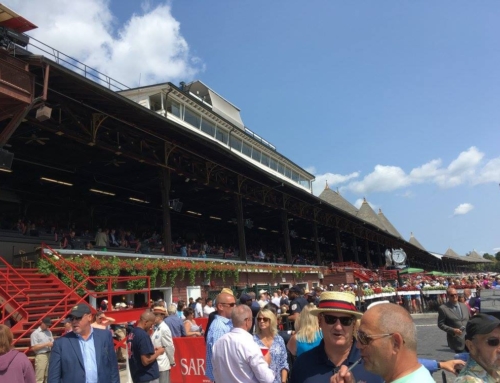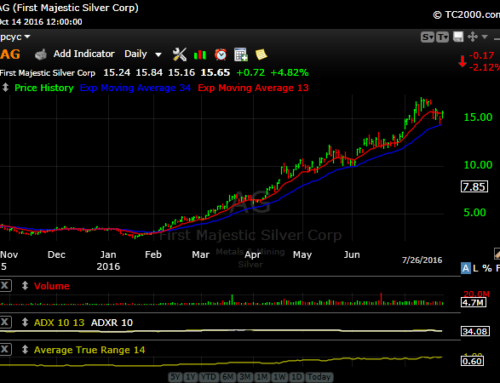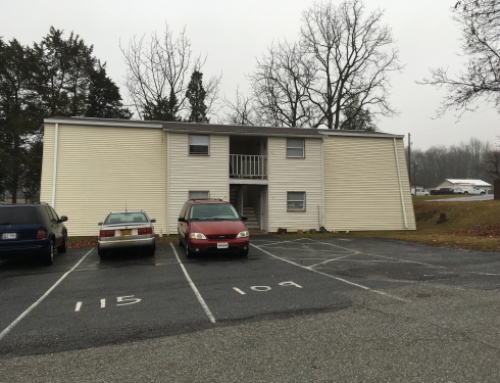 As someone who has been appraising commercial real estate for nearly thirty years, I’ve pretty much seen it all when it comes to success and failure in these markets. While real estate investing is one the more popular streams of income that average people try to develop to build wealth, I think it is one of the most difficult.
As someone who has been appraising commercial real estate for nearly thirty years, I’ve pretty much seen it all when it comes to success and failure in these markets. While real estate investing is one the more popular streams of income that average people try to develop to build wealth, I think it is one of the most difficult.
Here are the five biggest mistakes I’ve seen made by real estate investors.
Buying Cheap Real Estate
Many novice investors will often go into neighborhoods where the real estate is cheap, either to flip a property or as a longer term investment after they make some improvements.
However, just like in the stock market, a property is usually cheap for a reason. Most of the time, that reason is tied to the neighborhood in which it is located.
Buying in these neighbhorhoods presents significantly more risk than you’ll find in other neighborhoods…higher crime rates, higher vacancy rates, and lower stability.
Some properties are cheap for other reasons. Perhaps there is a structural issue, or perhaps the property is simply flawed in some way due to poor design, difficult site access, poor visibility, etc.
Ultimately, if you are bargain hunting, you’ll really need to do your homework to see if there is a possibility to generate value for a cheap property.
Over Improvements
Another common mistake I see in the real estate markets involves the over improvement of a property that is not justified by market rents. This is very common among owner occupied commercial buildings, but I also see investors do this to a property, particularly in the multifamily market.
For example, a few years ago I had the opportunity to appraise a building that was converted from a commercial use into three luxury apartments. The investor spent over $500,000 on improvements, then turned around and leased the units for $1,500 per month just to get them filled.
To justify those improvements, however, he needed to get at least $2,500 to $3,000 in rent. Unfortunately, no one in their right mind is willing to pay that kind of money in rent at that location. The absolute top of the range in market rent for that neighborhood was less than $2,000.
In this case, the investor simply thought that those improvements would attract tenants no matter what. But, in a market where you can simply buy something with a mortgage payment well under $1,500, that made no sense.
Buying commercial property with no experience
Many investors at some point decide to move over to buying commercial real estate after investing in residential properties for a while.
But, commercial real estate is a completely different animal altogether, and requires a lot more knowledge. The lease terms are different; the taxes tend to be higher; there can be more maintenance; tenants may be more demanding; property management can be more expensive. Furthermore, commercial space tends to stay vacant for much longer.
I’ve noted a few successful investors in residential real estate who decided to move over to the commercial size and failed spectacularly. One such investor decided to buy and operate a sizable restaurant in his hometown after building up a portfolio of several hundred apartment units. He filed for bankruptcy a few years later.
Similar to investing in residential properties, you really need to conduct a lot of research to familiarize yourself with the market in commercial real estate. For instance, lease terms for retail space are very different from lease terms for office space. And, the supply and demand dynamics for these two sectors differ greatly as well.
Generally speaking, the most successful investors I’ve seen in commercial real estate tend to be developers who buy land and then build. Or, they are able to pick up buildings at bargain prices at locations where they know they can be rewarded for making improvements to those buildings by existing market rents.
I don’t usually see too many successful small investors in commercial real estate because they are forced to buy lower class properties that are more difficult to keep fully leased.
Buying Too Many Properties
Some people simply buy too many properties because they can’t pass up a bargain. I’ve witnessed this time and again.
I few years ago I handled some appraisal work involving a variety of properties owned by one individual who was trying to manage all of these properties on his own. All of the properties were the type that needed significant work, and they included multifamily properties, free-standing restaurants and mixed use properties. It appeared that the owner never spent a dime on any of them, and most had high vacancy rates.
It was clear that this investor just kept buying and buying without ever building up equity in any one property. He simply counted on the properties appreciating in value over time. He clearly did not consider the possibility of a downturn in real estate values, which occurred as a result of the 2008-2009 recession.
Speaking of downturns in real estate values…yes, they do occur. When I first started in the appraisal business, we were at the beginning of one such downturn as a result of the savings and loan crisis, which led to a recession in 1990.
I remember appraising a medical office condo a couple years later and my value came in well under what the doctor had paid before that recession hit. He exclaimed “I thought real estate always appreciated.” Lesson learned.
The point here is that you should be sure you are actually building equity in the properties you own, and have enough cash flow to withstand these market swings. Avoid buying too many properties because you can.
Paying Too Much
Finally, another huge mistake some investors make is simply paying too much for a property, simply because they just wanted to own it.
I mentioned the multifamily investor who bought a restaurant. The price he paid was probably close to double what he should’ve paid. The seller financed some of the purchase, which helped to inflate the price. The transaction was simply all about the desire to own the most popular restaurant in the investors hometown.
One of the most successful investors I know who is not a developer has virtually always bought properties at below market value. He simply looks for properties where the seller has found themselves in financial trouble. He’s also done well by adding value to these properties and buying with a long term time horizon. He rarely sells.
Final Thoughts
Real estate can be a great way to build an alternative stream of income and to build substantial wealth. But, the most successful investors I know never make these common mistakes. They are always very prepared when they buy a property, and are able to identify value.
The key takeaway from this is that you should be very patient when looking to make an investment in real estate. Look for bargains where value can be added, and do your homework. Then be sure that property is operating well enough to provide you with enough equity and cash flow to purchase another investment.
Building wealth in real estate should be viewed as a long term game plan and not a get rich quick scheme.





Leave A Comment